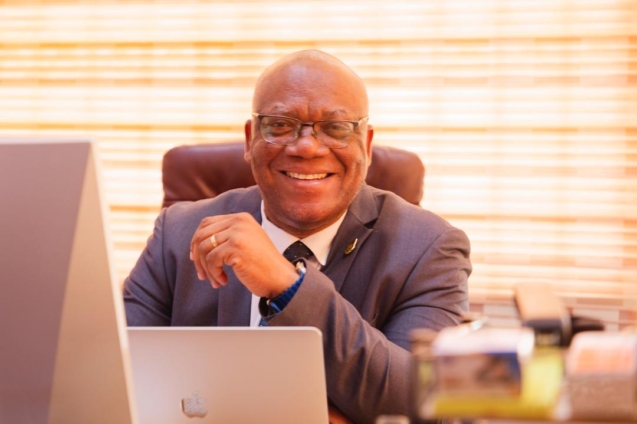The Artificial Intelligence for Sustainable Development (AI4SD) project is leading the charge in addressing some of the world’s most pressing challenges in Ghana and across the globe.
The project focuses on leveraging artificial intelligence (AI) to address all 17 SDGs, with particular emphasis on SDG 1 (no poverty) and SDG 2 (zero hunger).
One of the focus areas of intervention is agriculture, where AI solutions will be deployed to increase productivity.
Project lead for the AI4SD initiative, Prof. Jerry John Kponyo shares his vision for how AI can accelerate progress towards the United Nations Sustainable Development Goals (SDGs).
“We’re deploying most of AI tools we’re developing in the labs to the field to boost agricultural productivity starting with the land we have secured at Anwomaso in the Ashanti Region. Our goal is to scale these solutions to address hunger and poverty,” he said.
Beyond agriculture, the AI4SD will tackle other critical sectors, including illegal mining activities, which threaten water bodies and food sources.
“We want to deploy AI tools to clean our water bodies and ensure our food is safe for consumption,” Prof. Kponyo explains.
The 10-month project is operating under the Responsible Artificial Intelligence Lab, which is supported by IDRC Canada, GIZ of Germany and FCDO (UK’s international development wing).
The project is also exploring the potentials of AI to revolutionize healthcare delivery in Ghana.
It will harness the tools to diagnose rare diseases that are often difficult for medical professionals to identify.
“AI can make it easier to diagnose conditions that are challenging to identify in the various consulting rooms,” he added.
In addition to these sectors, the AI4SD project is committed to fostering innovation and entrepreneurship. By encouraging AI-powered startups, the project aims to create new opportunities for economic growth.
Prof. Kponyo also highlights the importance of inclusivity, particularly relating to gender diversity as the project seeks to support differently-abled individuals, using AI technologies to bridge the inequality gap.
“We’re actively working to bring more women into the technology space, especially through AI education initiatives like robotics clubs in Senior High Schools,” he said.
Prof. Kponyo envisions AI as a tool for social good, helping marginalized communities overcome barriers and access opportunities.
The project is receiving special support from the French Government through the French Embassy in Ghana, with additional collaborations in Africa and a satellite lab in Cape Verde.
Stakeholders of the initiative envision upscaling the project and called on actors in the various areas to collaborate for effective execution.
Latest Stories
-
Rambo-style arrest of people unnecessary – NPP on Wontumi’s arrest by EOCO
4 minutes -
Appoinment blues: without sabotage, my boss would have been in public office by now
5 minutes -
Chamber of Aquaculture calls on global investors to take advantage of Ghana’s mariculture sector
18 minutes -
2025 Unity Cup: Otto Addo eyes win against Nigeria
20 minutes -
Speaker disappointment over MPs’ silence on offensive comment
22 minutes -
Washington Embassy saga: Ablakwa lacks tact and diplomacy required of a top diplomat – Minority
24 minutes -
7 convicted for robbery and murder of former Sogakope Assembly Member
37 minutes -
Reintroduce corporal punishment in schools to address indiscipline – Chief tells Government
43 minutes -
53-year-old arrested for attempted murder over Liverpool incident
49 minutes -
G/A Regional Minister leads demolition of illegal structures on Lashibi Ramsar site
55 minutes -
‘Daughter of a murderer’ comment: Majority pushes for NPP backbenchers to face Privileges Committee
1 hour -
Buoho residents want quarry activities streamlined to ease exposure to risk
1 hour -
Unemployed teachers call for employment to address staff shortage
1 hour -
Suspended Chief Justice has right to choose trial venue – Ansa-Asare
2 hours -
Big Chef Junior S4: Kitchen heats up as contestants take on Indomie challenge
2 hours

